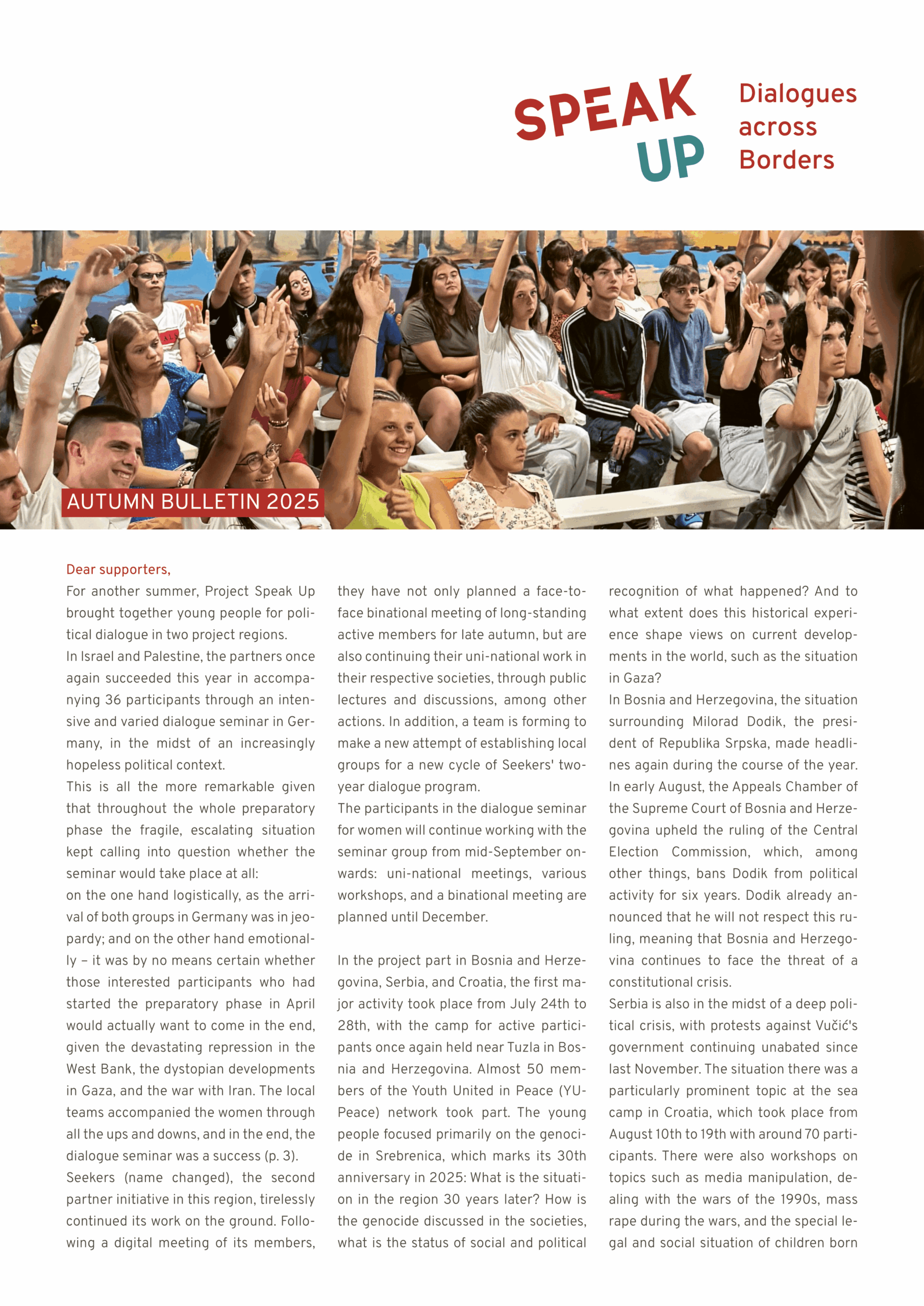
Dear supporters,
For another summer, Project Speak Up brought together young people for political dialogue in two project regions.
In Israel and Palestine, the partners once again succeeded this year in accompanying 36 participants through an intensive and varied dialogue seminar in Germany, in the midst of an increasingly hopeless political context.
This is all the more remarkable given that throughout the whole preparatory phase the fragile, escalating situation kept calling into question whether the seminar would take place at all:
on the one hand logistically, as the arrival of both groups in Germany was in jeopardy; and on the other hand emotionally – it was by no means certain whether those interested participants who had started the preparatory phase in April would actually want to come in the end, given the devastating repression in the West Bank, the dystopian developments in Gaza, and the war with Iran. The local teams accompanied the women through all the ups and downs, and in the end, the dialogue seminar was a success (p. 3).
Seekers (name changed), the second partner initiative in this region, tirelessly continued its work on the ground. Following a digital meeting of its members, they have not only planned a face-to-face binational meeting of long-standing active members for late autumn, but are also continuing their uni-national work in their respective societies, through public lectures and discussions, among other actions. In addition, a team is forming to make a new attempt of establishing local groups for a new cycle of Seekers‘ two-year dialogue program.
The participants in the dialogue seminar for women will continue working with the seminar group from mid-September onwards: uni-national meetings, various workshops, and a binational meeting are planned until December.
In the project part in Bosnia and Herzegovina, Serbia, and Croatia, the first major activity took place from July 24th to 28th, with the camp for active participants once again held near Tuzla in Bosnia and Herzegovina. Almost 50 members of the Youth United in Peace (YU-Peace) network took part. The young people focused primarily on the genocide in Srebrenica, which marks its 30th anniversary in 2025: What is the situation in the region 30 years later? How is the genocide discussed in the societies, what is the status of social and political recognition of what happened? And to what extent does this historical experience shape views on current developments in the world, such as the situation in Gaza?
In Bosnia and Herzegovina, the situation surrounding Milorad Dodik, the president of Republika Srpska, made headlines again during the course of the year. In early August, the Appeals Chamber of the Supreme Court of Bosnia and Herzegovina upheld the ruling of the Central Election Commission, which, among other things, bans Dodik from political activity for six years. Dodik already announced that he will not respect this ruling, meaning that Bosnia and Herzegovina continues to face the threat of a constitutional crisis.
Serbia is also in the midst of a deep political crisis, with protests against Vučić’s government continuing unabated since last November. The situation there was a particularly prominent topic at the sea camp in Croatia, which took place from August 10th to 19th with around 70 participants.
